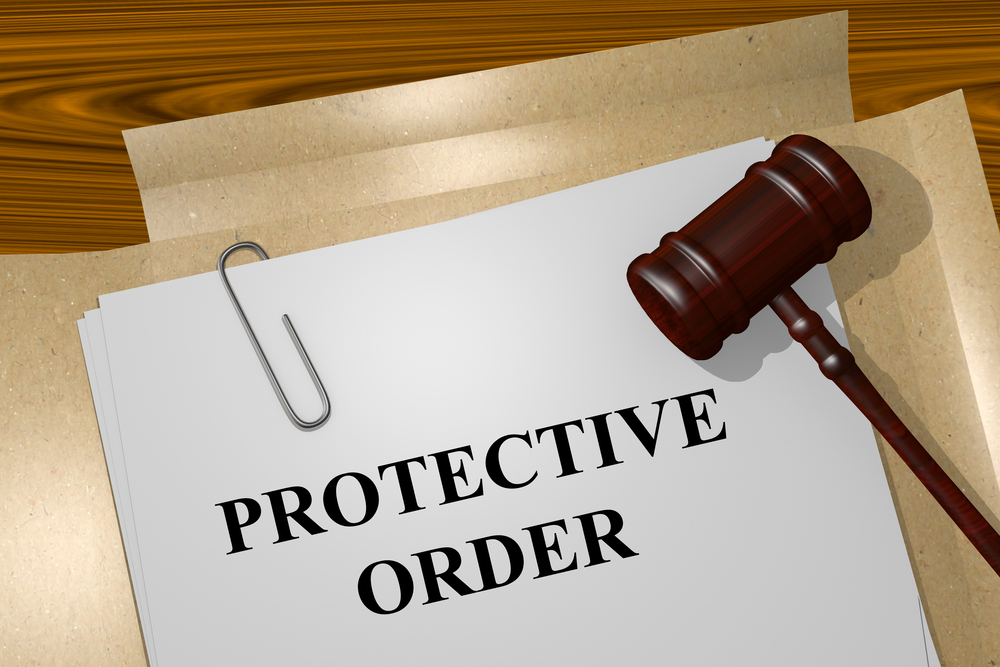Free Consultations: 630-427-4407
Divorce, often a taxing and emotional process, requires a deep understanding of both the emotional journey and the legal intricacies that underpin it. In the state of Illinois, these legal nuances are especially pronounced, given the state’s specific regulations and standards governing the dissolution of marriage. The complexities of divorce in Illinois necessitate an in-depth exploration of the laws and statutes that define it.

Central to the divorce process in Illinois is the Illinois Marriage and Dissolution of Marriage Act (IMDMA). This comprehensive act delineates the rights, responsibilities, and procedures related to marriage and its dissolution. The IMDMA touches upon a myriad of issues, such as property distribution, responsibility for decisions pertaining to children, support obligations (both spouses and children), and allocation of debts.
Over the years, the IMDMA has undergone several amendments, reflecting the evolving societal norms and perceptions related to marriage and divorce. These changes aim to make the divorce process more equitable, transparent, and reflective of the modern familial structure. Some of the recent amendments have ushered in changes like removing the need to prove fault in a divorce, thus shifting Illinois to a no-fault divorce state.
This significant shift means that couples no longer need to prove instances of adultery, cruelty, or desertion. Instead, they can cite “irreconcilable differences” as the sole ground for divorce, streamlining the process and removing the often adversarial nature of fault-finding from the proceedings. Another notable change is in the realm of child custody, which is now referred to as “allocation of parental responsibilities”, emphasizing the shared responsibility of parenting, irrespective of marital status.
Such amendments and changes stress the importance of hiring and experienced attorney who is staying updated on these changes. Whether you’re a resident of Glen Ellyn or any other part of DuPage, Will, or Cook Counties, understanding the nuances of the IMDMA and its latest revisions is crucial for anyone embarking on the path to divorce in Illinois.
Navigating the intricate maze of divorce proceedings in Glen Ellyn, and by extension, the state of Illinois requires more than just a rudimentary understanding of the process. It mandates a mastery of the terminologies that dominate the legal landscape of divorce. It is not simply enough to understand these terms, but your attorney should also comprehend how these various issues interrelate and the impact each may or may not have on the outcome of your divorce.
Petitioner vs. Respondent: At the commencement of a divorce action, two parties emerge – the individual initiating the process is referred to as the “Petitioner.” This individual files the petition seeking the dissolution of marriage. The opposing party which is the spouse on the receiving end of this is labeled the “Respondent”.
Marital vs. Non-Marital Property: Divorce invariably brings the division of assets to the forefront. In Illinois, assets are predominantly categorized into ‘Marital’ and ‘Non-Marital’ properties. Marital property encompasses all assets and debts acquired by either spouse during the marriage, barring certain exclusions like gifts or inheritances made explicitly to one spouse. On the other hand, non-marital property refers to assets that a spouse owned before the marriage or those acquired through means like inheritance or gifts during the union. The distinction is paramount as the ratio of marital vs. non-marital property directly affects how a Judge will view the distribution of property.
Dissolution of Marriage: Is the big fancy formal legal way of saying divorce. It signifies the legal termination of a marriage, nullifying the marital bond and freeing each party from the rights and responsibilities of matrimony.
Maintenance (formerly Alimony): Maintenance, previously known as alimony, revolves around financial support one spouse may be required to provide the other. Factors such as the duration of the marriage, each party’s financial situation, and their future earning capacities play a role in determining maintenance amounts and durations. However, maintenance is not guaranteed in Illinois, rather it is up to the discretion of the Judge based upon the pertinent facts supporting the different factors.
Parental Responsibilities (formerly Custody): Reflecting modern perspectives on co-parenting, Illinois has transitioned from using the term “custody” to “parental responsibilities.” This shift underscores the emphasis on shared responsibilities, focusing on what’s in the child’s best interest. The term encapsulates both significant decision-making roles and day-to-day caretaking duties. Illinois has determined that there are four (4) major decisions that most often occur as a result of raising children. These are: education; extra-curricular, religion, and medical issues.
Parenting Time (formerly Visitation): “Parenting Time” has replaced what was once termed “visitation.” This modern nomenclature emphasizes the quality time parents spend with their children, rather than just scheduled visits. It’s a more inclusive term, highlighting the parent-child relationship’s dynamic and continuous nature. Typically, the courts seek to have a written schedule that sets out what parenting time schedule the parties are going to be utilizing.
Allocation Judgment: Central to any divorce involving children is the Allocation Judgment. This is the written agreement that sets out the parental responsibilities and parenting time schedule the parties agree to and represents the roadmap as to how the parties will navigate co-parenting between themselves.
Mediation: An alternative to traditional courtroom battles, mediation is a structured, interactive process where an impartial third party assists disputing parties in resolving conflict using specialized communication and negotiation techniques. In the context of divorce, mediation can be an invaluable tool, fostering mutual agreement on contentious issues, be it property division or parenting responsibilities.
A thorough grasp of these terms is vital for anyone traversing the divorce landscape in Glen Ellyn and broader Illinois. They serve as the foundational pillars upon which the entirety of the divorce process rests.

Divorce is more than just the dissolution of a marriage; it encompasses a myriad of intertwined issues, each requiring its own careful consideration and resolution. Let’s delve into these in detail:
Alimony/Maintenance: In Illinois, maintenance, previously termed alimony, is financial support that one spouse might owe the other. Maintenance is not automatic but is subject to the Judge’s discretion based upon the particular facts unique to each case. The IMDMA offers guidelines on what is appropriate in terms of maintenance, however, the court always has the discretion to deviate from those guidelines based on factors like the couple’s standard of living and future earning capacities.
Child Custody/Parental Responsibilities: Divorce invariably brings to light concerns about children’s welfare. Parental responsibilities, previously known as custody, can be sole (where one parent assumes the majority of responsibilities) or joint (shared by both parents). Key determining factors include the child’s best interests, each parent’s physical and mental health, and the child’s adjustment to their current living situation.
Child Support: This pertains to the obligation each party owes to financially support the children. The calculation is based on a formula considering both parents’ incomes and the amount of time the child spends with each parent. Modifications can be sought if there are significant changes in circumstances, like job loss. Enforcement mechanisms exist to ensure the paying parent meets their obligations.
Child Visitation/Parenting Time: This is the schedule outlining when each parent spends time with the child. The focus is on ensuring the child has consistent interactions with both parents. Courts can modify this schedule if it’s in the child’s best interests, especially if circumstances change substantially.
Property Division: As mentioned earlier, assets are categorized as marital or non-marital. Illinois follows the principle of “equitable distribution”, ensuring assets are split fairly, though not necessarily equally.
Retirement Savings: Retirement assets, like pensions and 401(k)s, can be a significant point of contention They are considered defined benefit plans and must be apportioned properly to ensure they retain any tax protections. Qualified Domestic Relations Orders (QDROs) are required to divide such assets properly to avoid incurring corresponding tax penalties.
Debt Division: Just as assets are divided, so too are debts. Marital debts, those incurred during the marriage, are equitably distributed between the parties, irrespective of whose name the debt is in. Once again it is important to remember that Illinois is an equitable state and not an equal state. The Judge has the discretion as to how to apportion debts between the parties. The Judge does not automatically have to divide the debt equally.
Orders of Protection: If a spouse or child is at risk of harm, orders of protection can be sought. These are subject to filing the proper petition and require a hearing in court. Orders of Protections can have serious, sometimes criminal implications if they are violated. They are a tool that is used to help protect the safety of at-risk partners and minor children, it is not a tactic to be used to gain an upper hand in disputes involving the children.

Embarking on a divorce in Illinois necessitates an understanding of the procedural pathway:
The divorce process in Illinois, while structured, requires careful navigation and expert application of the facts unique to your case to ensure that you receive the best possible outcome.
The time it takes for a divorce to finalize in Illinois is not one-size-fits-all. Typically it depends upon how much the parties can agree or disagree . Broadly, divorces fall into two categories: uncontested and contested. An Uncontested Divorce implies that both parties agree on all significant matters like property division, child custody, and support. This mutual consensus generally expedites the process and often reduces costs by avoiding the need to file motions and have hearings to resolve issues.
Contrastingly, a Contested Divorce arises when disagreements persist, requiring court intervention. Such divorces often take a year or more to fully resolve. The varying length is contingent on the complexities and the court’s calendar. Several factors influence the timeline, including the couple’s willingness to negotiate, the court’s backlog, and the intricacies of the individual case.

Protection orders are vital tools for safeguarding individuals from potential harm. Illinois categorizes them into three types:
Criteria for issuance are subject to the Illinois Domestic Violence Act. This might span from verbal threats and harassment increasing in severity to stalking, and even instances of actual and physical harm or violence committed upon one party. Violating these orders carries significant legal implications, including fines, custody alterations, and possibly imprisonment.
When filing for divorce in Glen Ellyn, selecting the right attorney is paramount. Essential qualities to look for in an attorney include experience, particularly in family law, and the lawyer’s particular outlook and approach to the process of divorce. Divorce is a difficult time in people’s lives, but it will go much smoother if the client and the lawyer’s communication style and approach to divorce are similar. These can also be further improved by ensuring transparency and responsiveness on the part of the lawyer. Financially, understanding costs is also important. Divorce Lawyers typically work on retainers, hourly rates, or even flat fees in some cases. It’s very important to clarify the legal fee structure upfront.
If you are considering divorce or have been served with divorce papers, it’s crucial to consult with our seasoned legal professionals as soon as possible. For caring, dedicated, and experienced legal assistance, contact our Glen Ellyn attorneys at 630-427-4407. Your future might be uncertain, but with the right legal ally, you can face this challenge with confidence.